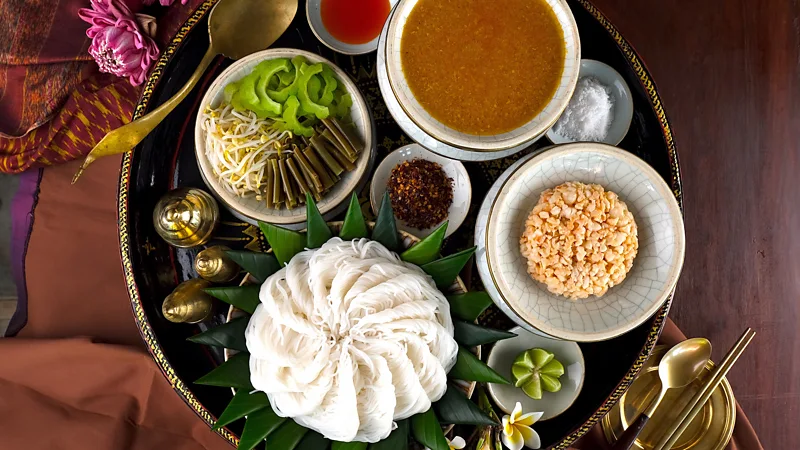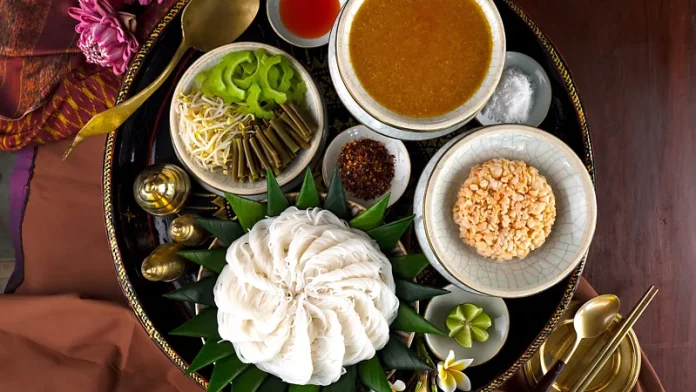
Reviving Cambodia’s Culinary Legacy Lost During the Khmer Rouge Era
In recent years, a growing number of contemporary female chefs in Cambodia have taken up the mission of preserving and sharing the country’s nearly forgotten Khmer recipes and ingredients, which were suppressed during the brutal Khmer Rouge regime in the 1970s. Leading this culinary revival is Ros Rotanak, also known as Chef Nak, one of Cambodia’s prominent celebrity chefs.
Chef Nak’s passion for food traces back to her childhood, when she accompanied her mother to sell vegetables at the Doeurm Kor night market in Phnom Penh. Now, as a self-taught chef, she conducts Khmer cooking classes at her home near downtown Phnom Penh, where she enthusiastically imparts the intricacies of Khmer cuisine.
Describing Khmer cooking, Chef Nak emphasizes its depth and balance of flavors, incorporating sweet, salty, and sour elements. She highlights the use of sour flavors beyond citrus, such as tamarind leaves and young fruits, in various dishes like soups and stir-fries.
Chef Nak’s journey to preserve Khmer cuisine began during a trip to the US in 2010, where she realized the lack of recognition for Cambodian food despite its presence in some Thai restaurants run by Cambodians. Motivated by this discovery, she embarked on a quest to document traditional recipes from village elders across Cambodia, culminating in her 2019 cookbook, “Nhum,” and her acclaimed 2023 release, “SAOY – Royal Cambodian Home Cuisine,” which was honored as the Best Cookbook in the World at the Gourmand World Cookbook Awards.
The suppression of Khmer cuisine during the Khmer Rouge era had a profound impact, with severe restrictions imposed on cooking and local food production. The aftermath of the regime saw a shift in culinary preferences among Cambodian youth towards fast food and foreign-influenced dishes, leading to a decline in the cultivation of local ingredients and the loss of authentic recipes.
To counteract this trend, Chef Nak and other pioneering chefs like Kimsan Pol have been instrumental in revitalizing Khmer cuisine through their restaurants and culinary initiatives. Pol, like Chef Nak, travels extensively to rediscover authentic Khmer recipes and incorporates them into modern interpretations served at her establishments, Embassy Restaurant in Siem Reap and Sombok in Phnom Penh.
Moreover, the efforts of Cambodian Princess Rasmi Sobbhana Norodom, as documented in her 1960 cookbook, “The Culinary Art of Cambodia,” have provided invaluable insights into traditional Khmer recipes, including rare dishes like samlor muktaa (white pearl soup).
Through their dedication and passion, Chef Nak, Chef Pol, and others are not only preserving Cambodia’s culinary heritage but also showcasing it to the world, ensuring that the rich flavors and cultural significance of Khmer cuisine endure for generations to come.























